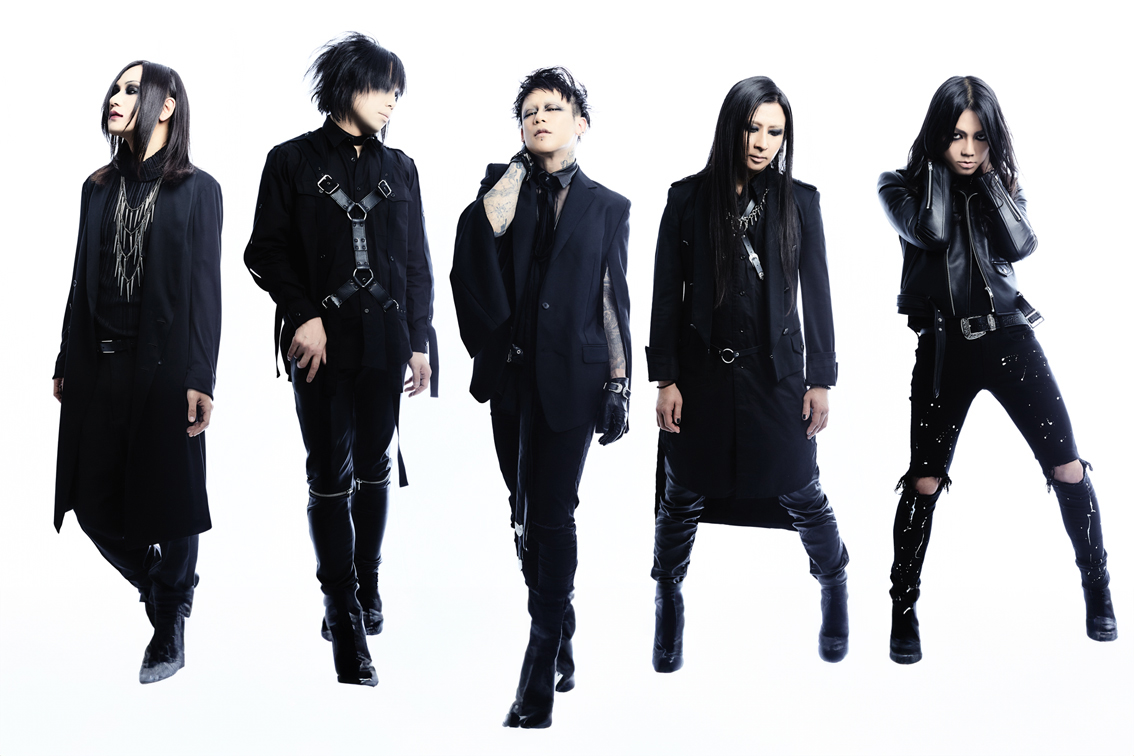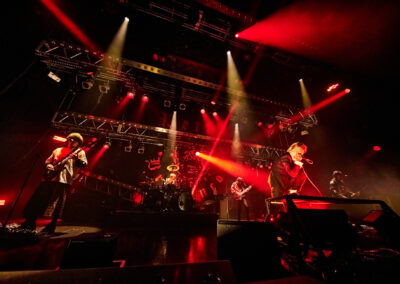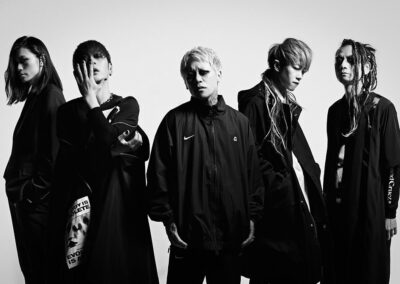From vocalist to innovator: Kyo (DIR EN GREY)’s musical metamorphosis with sukekiyo’s Immortalis
sukekiyo, a musical project formed in 2013 by the renowned vocalist of DIR EN GREY, Kyo, showcases a unique fusion of experimental and atmospheric sounds. Their music seamlessly blends elements of rock, metal, electronic, and experimental genres. After the successful release of their debut album, Immortalis, on April 30th, 2014, sukekiyo is now embarking on their very first headlining tour. Prior to their highly anticipated show at Divan du Monde in Paris, we had the privilege of interviewing the enigmatic frontman, Kyo, to delve into the depths of this captivating new project.
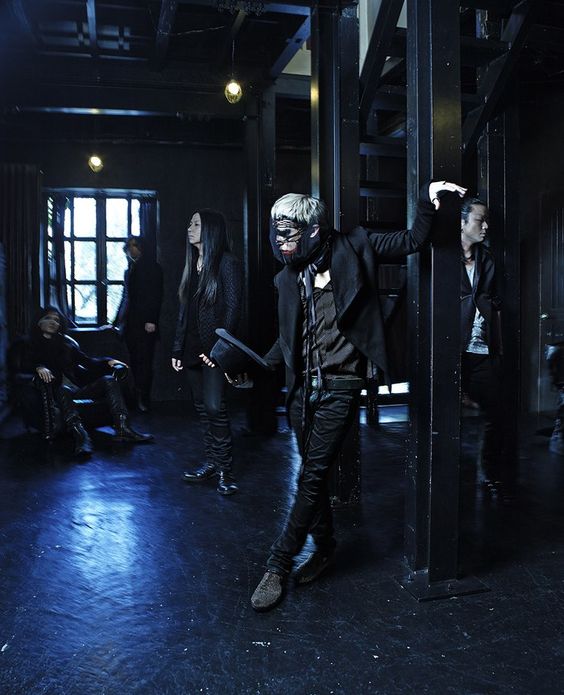
——Kyo, can you tell us about the decision to launch sukekiyo and how it came about?
Kyo: Hum. I’ve never really questioned myself about why I decided to launch sukekiyo at that particular moment. It was more of a gut feeling, a strong desire to explore new musical territories and express myself in a different way. I just wanted to do it. Looking back, with our album “Dum Spiro Spero,” I feel like we had pushed ourselves as far as we could go regarding the sound of Dir en grey. It was a very deep and intense experience for me, as we delved into ourselves and explored our innermost emotions and thoughts. I guess it was the right time to take a break from Dir en grey and pursue other creative endeavors.
——Kyo, can you explain the benefits you derive from being a part of sukekiyo compared to your experience with DIR EN GREY?
Kyo: With DIR EN GREY, there are certain limitations and boundaries that I have to adhere to. There are songs that I cannot sing and a specific sound, image, and mentality associated with the band. It’s the result of the combination of five different individuals and their creative input. However, with sukekiyo, I wanted to challenge myself and explore new territories that I have never ventured into before. I desired to work in a new environment, collaborate with different people who have diverse mindsets and perspectives. These two bands have distinct vibes and energies. I, as a person, have also undergone significant changes and growth over the years. sukekiyo allows me to express this new self, to tap into different aspects of my creativity and explore uncharted territories. It provides me with the opportunity to open new doors and broaden my horizons as an artist. While the other self, represented by DIR EN GREY, is still very much alive and present, sukekiyo offers me the chance to embrace a different artistic vision and express myself in ways that may not have been possible within the confines of DIR EN GREY. It’s a platform for me to explore my evolving identity and push the boundaries of my artistic expression. That is the benefit I derive from being a part of sukekiyo compared to DIR EN GREY.
——Kyo, it seems that sukekiyo represents a different part of yourself compared to DIR EN GREY. Can you describe this sukekiyo part of yourself?
Kyo: It’s difficult for me to express it in words. The essence of sukekiyo is something that needs to be experienced and felt rather than explained. Even if you listen to our CDs, you’ll only get a glimpse of what sukekiyo is truly about. The live shows are where the essence of sukekiyo comes alive. Both the recorded music and the live performances are important to me, but the live shows hold a special significance. I hope that through experiencing our live performance tonight, you’ll be able to grasp the meaning and essence of sukekiyo.
——Would you consider sukekiyo a band or a personal solo project?
Kyo: sukekiyo is definitely a band. While I am involved in various aspects of the band, it is not solely a personal solo project. sukekiyo is a collaborative effort, and each member brings their own unique contributions to the table. We work together to create the music, the visuals, and the overall artistic direction of the band. It’s a collective endeavor, and I value the input and creativity of each member. sukekiyo is a band that represents the collective energy and artistic vision of all its members.
——Did you have a specific vision in mind when you first started working with them, or did you want to be surprised and let improvisation open the doors?
Kyo: From the very beginning, I never wanted to do sukekiyo by myself. Collaboration was always on my mind. The aim of the project was to create something that nobody could possibly expect or imagine, not even myself. So, I felt the need to bring other people on board quickly. This is why I consider sukekiyo a band rather than a solo project. Each member adds value to the project and has an influence on the direction of the sound. We are complementary to each other. And yes, you are right, I wanted to be surprised. While I had general ideas in mind, it was important to me to give improvisation a significant role in our creative process.
——In terms of music, do you believe that working in a team produces better results than working alone?
Kyo: Let me think about that for a moment. I believe it depends. It is possible to create great music alone, just as it is possible to create bad music in a team. However, when you work with other people who have great ideas and share the same intentions as you, it definitely helps you surpass yourself. Collaborating with the right people allows you to create better and more surprising music than if you were to do it alone. I consider myself fortunate to have found the right people to work with in sukekiyo. I feel blessed to have them by my side. It wouldn’t have been the same without their contributions and creativity.
——So you personally handpicked the other members of Sukekiyo. What were your criteria for selecting them?
Kyo: (Laughs) Well, black long hair (laughs)! In all seriousness, my main criteria were finding individuals who shared the same goals and perspectives as me. I wanted to work with people who were creatively aligned with my vision. Chemistry was important to me, as I believe it’s crucial for a band to have a strong connection and understanding. I didn’t want to work with individuals who were excessively wild or indulged in excessive drinking or drug use (laughs). I wanted members who were versatile in playing different types of music and instruments. Ultimately, I selected serious, creative, and artistic individuals who could contribute their unique talents to the band.
——I’ve noticed a growing connection between your work and Tibetan Buddhism over the past few years. I might be over-analyzing, but I wonder if the title “Immortalis,” like “Uroboros,” is linked to reincarnation and the cycle of life and death. Is Tibetan Buddhism a source of inspiration for you?
Kyo: (Smiles) I wouldn’t say that you’re over-analyzing, but I also wouldn’t say that Tibetan Buddhism is a direct source of inspiration for me. I’m not particularly interested in religion. To be honest, I don’t even know much about Japanese history. But, while I don’t have a personal connection to religion, including Tibetan Buddhism, I do acknowledge the cultural and historical influence it has had on Japan. Buddhism, in general, has played a significant role in shaping Japanese traditions and beliefs. As a Japanese artist, I am influenced by the cultural backdrop of my country, and Buddhism is a part of that. But, my artistic expression is not rooted in religious beliefs or teachings. I draw inspiration from various sources, including personal experiences, emotions, and observations of the world around me. But, in some way, I might incorporate elements of Buddhism into my music, lyrics, stage performances, or visuals to create a connection for the audience.
——The sukekiyo project follows the release of your photography collections last year. Have you ever wanted to be more involved in the visual aspect of your bands, such as using your photos for artwork?
Kyo: I have a genuine interest in photography and visual arts. I find great joy in capturing moments and expressing myself through images. I have always had a passion for photography, and I enjoy taking pictures. I even take photos of the band during rehearsals and other moments. Whenever an opportunity arises, I seize it to capture images. I am genuinely interested in photography and visual arts. But, due to the demanding nature of my music career, I have limited time to fully immerse myself in the visual aspect. Once this tour ends, I will be returning to DIR EN GREY to work on recording our new album. Music keeps me occupied and leaves little room for additional endeavors, no matter how intriguing they may be. While I would love to be more involved in the visual aspect, time constraints prevent me from doing so at the moment. If the right circumstances arise, I would be thrilled to contribute more in that realm. But for now, my main priority is creating and sharing music with my fans.
——sukekiyo recently played their first headlining shows in Kyoto, and your exhibition also took place there. Why is this city so important to you? I’m actually planning to move there next year, so I’m curious to know what you like best about it.
Kyo: Oh, really (smiles)? That’s wonderful! Kyoto holds a special place in my heart because it is my hometown. Being born and raised there, it has shaped my identity and influenced my artistic sensibilities. The city is steeped in rich history, culture, and tradition, which I find deeply inspiring. One of the things I love most about Kyoto is its peaceful and relaxed atmosphere. It has a slower pace compared to bustling big urban cities like Tokyo, allowing for a sense of tranquility and introspection. This serene environment can be quite conducive to creativity and reflection. The preservation of ancient traditions and the integration of them into everyday life is something that sets Kyoto. However, because of this laid-back atmosphere, people can sometimes become lazy, and you might find yourself being bored at times. But overall, Kyoto is important to me, and there’s something special about it that I can’t quite put into words. You’ll have to experience it for yourself. And, of course, the food in Kyoto is fantastic! (Laughs)
——Tonight, you’ll be playing with sukekiyo in Paris for the first time, but you’ve played countless shows throughout your career. Do you feel any difference when performing with sukekiyo compared to DIR EN GREY?
Kyo: While there are some differences in the performance and onstage vibe between sukekiyo and DIR EN GREY, many aspects of being in a band remain the same. Both bands require extensive time spent in the dressing room, preparing for the show and getting into the right mindset. The touring experience, with all its ups and downs, is also quite similar for both bands. However, when it comes to the actual performance, there are noticeable differences. Each band has its own unique sound, style, and energy, which creates a distinct atmosphere on stage. sukekiyo has a more experimental and atmospheric approach, allowing for a different kind of artistic expression compared to the intense and aggressive nature of DIR EN GREY’s music. On a lighter note, there are also memorable moments offstage, such as the attempt to find a Japanese restaurant in Paris, only to discover it was closed. These little adventures and unexpected situations create unique memories that contribute to the overall experience of being on tour. Maybe I shouldn’t have left the hotel room (laughs). I’ll definitely remember that (laughs). Despite these differences, the core essence of being a musician and performing live remains constant. The passion, dedication, and connection with the audience are shared experiences that transcend the specific band or project.
Thanks for the interview, best of luck for tonight.
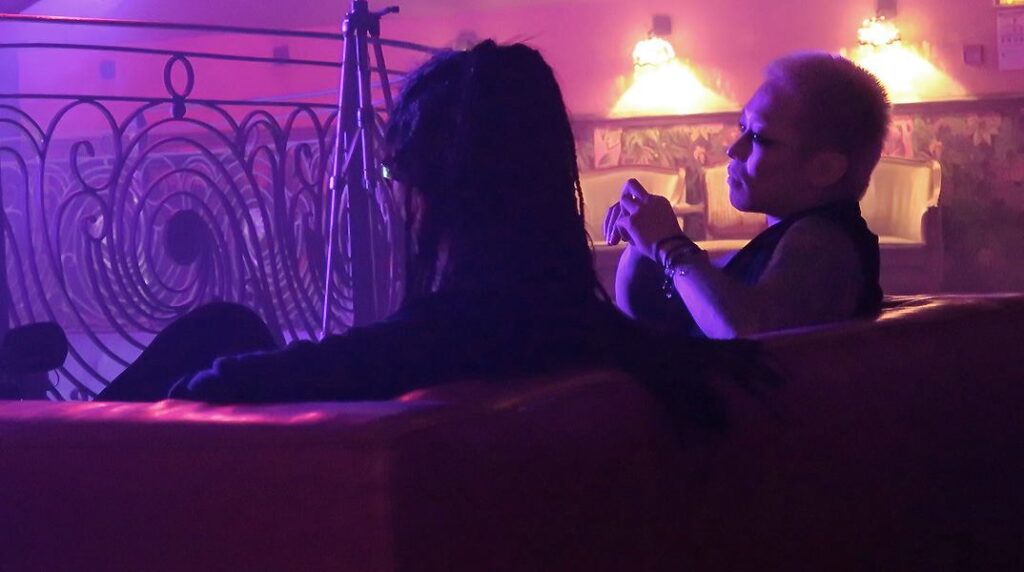
__________________
Mandah FRÉNOT
(c) VMJ

